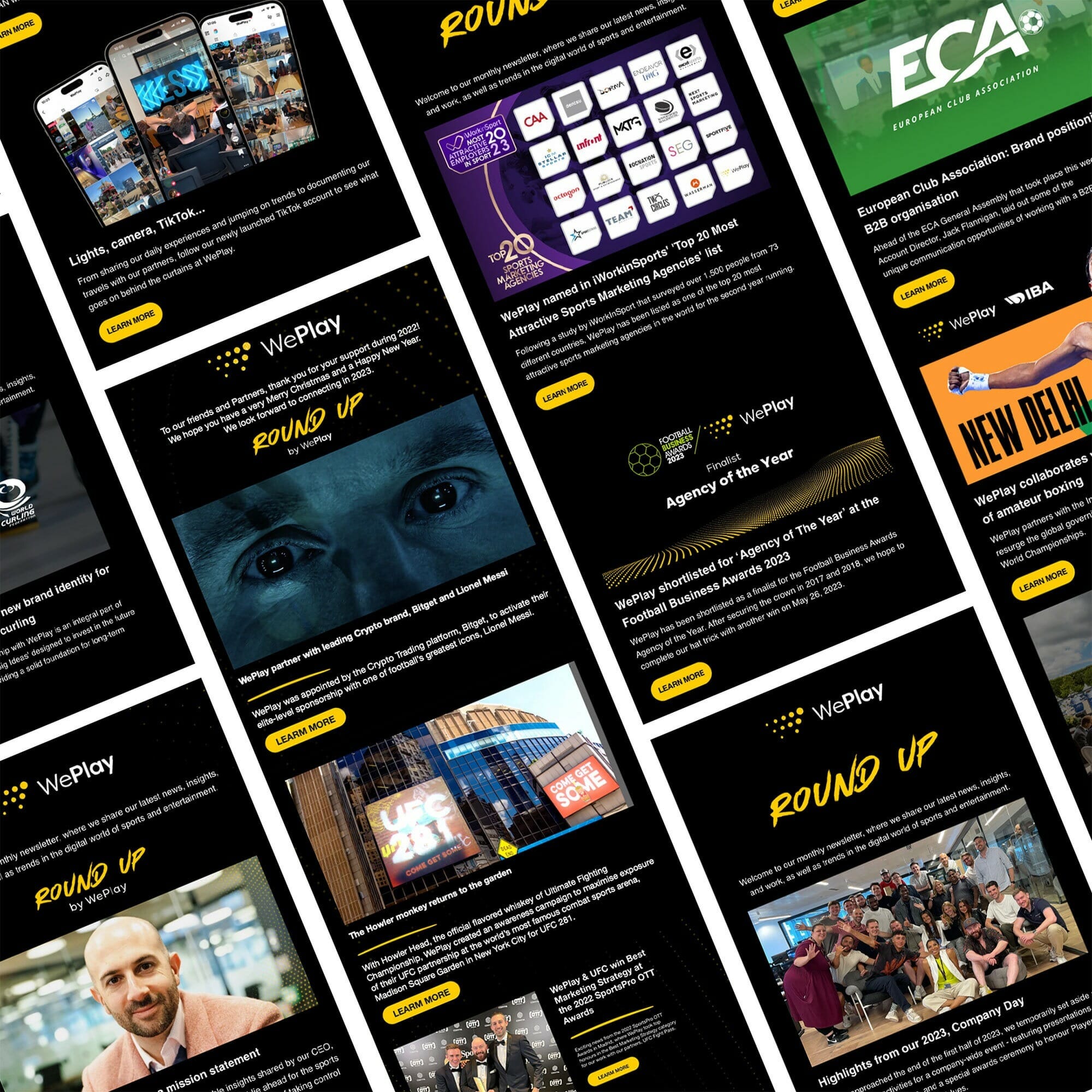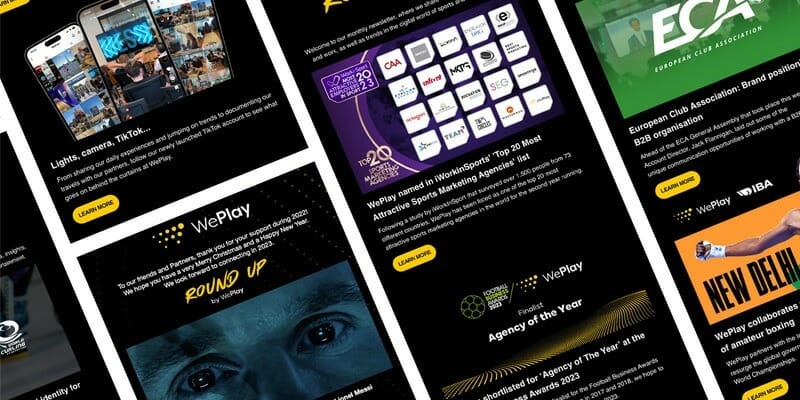
Leaders Week – Purpose and People
It’s officially Leaders Week and here at WePlay, we’re sharing our thoughts around the big talking points of the event.
For this instalment, we’re putting the spotlight on our Head of Client Services and Women’s Sport Lead Sharon Bennett. It only seemed right with her wealth and breadth of experience that we tackled the theme of purpose and most importantly to our clients and results, people.
Rapidly evolving trends mean we (and you) have to have a clear vision about what’s next within the sports marketing industry.
How do you think balancing inclusivity and market trends is important?
It is incredibly important that the work we do is representative of the fans and audiences we are trying to reach. Keeping up with the latest trends can enhance brand loyalty and broaden reach, but it’s incredibly important not to jump on the latest trend and lose credibility by being unauthentic. Authentic partnerships can differentiate rights holders and brands in a crowded market by connecting with audiences that have historically been underrepresented, equally executed poorly and it may have a damaging impact.
We have developed a 5-Step Purpose Framework to test our creative messaging and ideation:
- Does it address the issue?
- Are values truly aligned?
- Do we understand behaviours and desired outcomes?
- How do we authentically place the product?
- Will this make a measurable impact?
What are the challenges of trying to stay ahead in an industry that’s constantly evolving – and producing relevant/current client work?
The pace of change is one of the main challenges. We advise our clients to test and learn, particularly when considering digital strategies and platforms. Staying ahead involves continuous research, engagement with our platform partners via business reviews, and knowledge sharing as a team. We are fortunate to work across a variety of sports properties and this provides a wealth of insight and best practices. Maintaining strong relationships with clients helps ensure that work remains relevant and aligned with their needs. We also encourage workshops and knowledge sharing with clients, so we can evolve together.
Flexibility, agile working practices across teams and innovation are key to anticipating changes and delivering effective, impactful campaigns.
What do you think still needs to happen within the sports industry for growth?
I’d like to see a stronger commitment to diversity and inclusion across all levels, from grassroots to professional settings. This includes providing equal opportunities for underrepresented groups and promoting gender parity on and off the field. The next generation of sports fans is creating a new culture, a culture of community-fuelled storytelling, co-creation, and collaboration – the industry needs to remain relevant
Additionally, embracing digital transformation and sustainability initiatives can open up new revenue streams and enhance fan engagement. Creating a more inclusive and technology-driven environment will help the industry thrive by attracting new and interesting partners.
How important is the theme of lifestyle when integrated within the industry?
‘Fashion Sport’ is a category.
Sporting events like the Olympics and Euro 2024 made sports fashion a trend during the summer. The category is dominated by Lacoste, North Face, Salomon, Adidas and Nike – making sport a lifestyle (even if you’re not an athlete, which most of us aren’t!).
The integration of lifestyle themes into sports marketing is essential as it reflects the holistic view that consumers now have towards sports. Sports are no longer just about physical/elite activity; they embody a lifestyle choice encompassing health, fashion, culture, and technology. I believe this is an interesting trend that helps broaden the appeal of sports beyond traditional audiences, which in turn will make it more inclusive and diverse.
What do you believe is the next trend within the sports marketing space?
I’m sure immersive technologies like augmented reality (AR) and virtual reality (VR) will be a hot topic for Leaders this week. These technologies can bring fans closer to the action, whether through virtual attendance at sporting events or interactive at-home experiences.
The diversification of sports streaming solutions and pay-as-you-go micro-payment models (check out the article from my colleague Kenny Ager.)
Social media and influencer partnerships will continue to grow, with platforms like TikTok and Instagram helping sports organisations reach younger audiences and generate authentic engagement with integrated .ai solutions for localisation and translation.
Gaming communities such as Discord and Roblox will also offer some interesting opportunities for sports and brands to reach younger demographics and open new fans to sports via programmatic display advertising.

